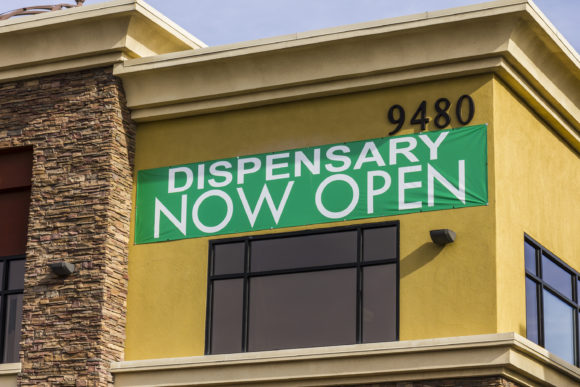The marijuana industry is an opportunity for insurers as more states have legalized the drug. But there are still risks in play that could limit wider carrier participation, A.M. Best said in a new report.
One of the key barriers is the federal government still classifies it as a controlled substance, continuing its status as an illegal drug even as individual states increasingly legalize its use.
“Those directly and tangentially involved in the industry need insurance that addresses the specific needs of growers, retailers, distributors, property owners and lab researchers,” the A.M. Best report says. “However, despite growing demand from both producers and retailers alike, many carriers are reluctant to embrace the industry, owing to its classification as a Schedule I drug in the eyes of the U.S. federal government, under the Controlled Substance Act of 1970.”
Because marijuana is not legal at the federal level, some carriers see marijuana insurance as a “debatable” move, A.M. Best said.
Legality Grows
The market for marijuana is as wide as it’s ever been in the United States, with 33 states and the District of Columbia now allowing the use of medical marijuana. Out of that number, 10 states plus D.C. also legalized recreational marijuana use (Canada made it legal as well in late 2018).
The A.M. Best report identifies a number of marijuana-related market segments that need insurance coverage. They include cultivation, dispensaries and retailers, infused products and landlords. Some insurers have responded. Approximately 25 carriers (mostly non-admitted) provide coverage in the space in both the U.S. and Canada, A.M. Best said. The Lloyd’s Market offers coverage in Canada but doesn’t offer coverage to businesses in the U.S., because the federal government still considers it illegal.
Carriers that have entered the market are typically partnering with “agencies and producers that have a better understanding of the industry and the needs of cannabis businesses,” A.M. Best said. One example: Topa Insurance Group, which supports Cannasure, an Ohio-based MGA and wholesale brokerage solely focused on the cannabis industry.
Existing Coverage Limited
Insurers that are just entering the market offer basic policies that typically cover: commercial general liability, with limits of $1 million per occurrence/$2 million aggregate; property liability and product liability, both with limits of $1 million per occurrence/$2 million aggregate, A.M. Best said. The ratings agency warned that these limits may not be enough for marijuana business owners, who may need higher aggregate limits.
Even insurers that jump in remain cautious.
“Because this is an emerging market for insurance companies, insurers believe that their risk in these businesses is best managed with their current limits. Another reason for the low limits is the challenge of finding reinsurers to back marijuana-related books of business, as reinsurance is typically a separate book or tower to cover these risks,” A.M. Best said.
A.M. Best warned that shared limits between general liability and product liability, plus non-stacking endorsements and policies that often lack a duty to defend remain problems for marijuana businesses.
Insurers, if they can address these obstacles, stand to gain plenty by embracing coverage in the marijuana space. A.M. Best noted that the industry (medical and recreational) produced $8 billion in sales in 2017, while sales of illegal marijuana hit the $42 billion mark.
Some projections call for legal marijuana sales to reach $22 billion by 2022, with illegal sales of the drug to drop to less than $5 million over the same period, as more states legalize use of the drug.
A.M. Best’s full report is “Cannabis: New Opportunities for Insurers, But with Burgeoning Risks.”
Source: A.M. Best
Was this article valuable?
Here are more articles you may enjoy.



 AI Claim Assistant Now Taking Auto Damage Claims Calls at Travelers
AI Claim Assistant Now Taking Auto Damage Claims Calls at Travelers  Fla. Commissioner Offers Major Changes to Citizens’ Commercial Clearinghouse Plan
Fla. Commissioner Offers Major Changes to Citizens’ Commercial Clearinghouse Plan  US Supreme Court Rejects Trump’s Global Tariffs
US Supreme Court Rejects Trump’s Global Tariffs  Florida Engineers: Winds Under 110 mph Simply Do Not Damage Concrete Tiles
Florida Engineers: Winds Under 110 mph Simply Do Not Damage Concrete Tiles 

